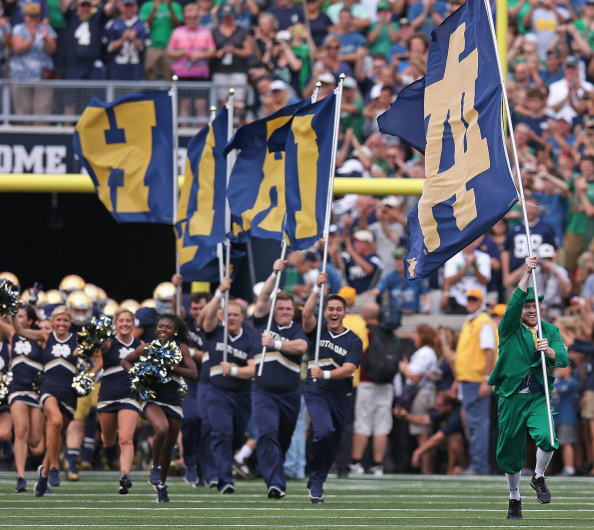College football is a billion dollar business that leads ESPN into very close relationship with nearly every fiber of the sport. The network is intimate business partners with the most powerful entities in college football from the playoff itself, to the rest of the bowl games, to all the conferences they enter into rights deals with and even individual teams. Those business relationships have called to question just how difficult it is for ESPN to balance the money they have invested in the sport with their journalistic responsibility to cover it fairly. And with the SEC Network and the season long questions about SEC bias, it may be more difficult for ESPN to balance church and state in college football than any other sport.
But stories like this one produce evidence that the self-proclaimed worldwide leader is still taking their investigative role in college football quite seriously. Bristol is suing Notre Dame because the university has not fulfilled a request to release campus police records. Reporter Paula Lavigne (who was the same reporter who led the Tallahassee Police Department to release documents in a questionable manner) requested the documents on behalf of ESPN.
Here’s more from the South Bend Tribune:
ESPN has filed a lawsuit against Notre Dame claiming the university violated Indiana’s public records law by refusing to release campus police records.
The suit was filed in St. Joseph Superior Court on behalf of ESPN Inc., the sports media company based in Bristol, Conn., and ESPN reporter Paula Lavigne, who requested the records.
Lavigne in September and November 2014 made requests to the university for Notre Dame Security Police incident reports and logs related to student athletes. Notre Dame rejected both requests.
As evidence in the lawsuit, ESPN submitted two recent opinions by Indiana Public Access Counselor Luke Britt.
Earlier this month, Britt — an attorney appointed by Indiana’s governor to advise on public access matters — issued an opinion stating Notre Dame has violated Indiana’s public records law if it has withheld police records requested by ESPN about possible campus crimes.
Notre Dame had some notable academic issues this past year and WR Will Mahone was arrested during the summer. At this point, it’s unclear what exactly the motivation is behind the records request from ESPN unless there’s some smoke about institutional issues with campus police and the university giving special treatment to athletes. Perhaps in the wake of the Florida State year of controversy, the network is just doing their due diligence. The dispute stems from the fact that while the university is private, its campus police department is public.
It’s relevant to note that this is far from the first time ESPN has filed suit against a major university over a records request. ESPN has also sued Ohio State and Texas over records requests in the past. Let this be a reminder of just how enormous ESPN is where one corner of the company can be filing lawsuits against universities while another is negotiating rights deals.







Comments are closed.